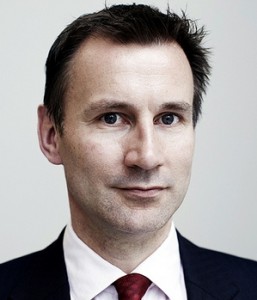Health Secretary Outlines Measures For Greater Patient Power
 “From next year, for the first time, new ‘Ofsted style’ ratings will show patients how their local area’s health service is performing in crucial areas, including:
“From next year, for the first time, new ‘Ofsted style’ ratings will show patients how their local area’s health service is performing in crucial areas, including:
- cancer
- dementia
- diabetes
- mental health
- learning disabilities
- maternity care
The new ratings, broken down by Clinical Commissioning Group (CCG), will not only be based on local data but will also be verified by experts in each field, including:
- the Chief Executive of Cancer Research UK, Harpal Kumar, who will verify cancer ratings
- the government’s Mental Health Taskforce Chairman Paul Farmer, who will lead on mental health ratings
Initial ratings, based on the current CCG assessments, will be published in June 2016. As part of the government’s transparency agenda, this will both spread best practice and help bring about improvement where services are underperforming. This will create a complete picture of care quality in the NHS.
By giving patients access to performance data, healthcare services in local towns and cities will be much more accountable to their local population than previously.
Patients and clinicians will also benefit from a range of new measures to cut bureaucracy across the health system, saving valuable time and money. Up to 27% of GP appointments could potentially be avoided if there was more co-ordinated working between GPs and hospitals, wider use of primary care staff and better use of technology. New measures will include immediately stopping pointless referrals from hospitals back to GPs – a waste of time which accounts for around 2.5% of appointments. By giving 2 hours a week back to each GP, there could be a 5% increase in workforce capacity – equivalent to 15 million appointments a year.
Other measures to save valuable resources which can be given over to patient care include:
- introducing a single payment system that covers all transactions to stop GP practices chasing different organisations for payment
- making surgeries paperless by 2018, ending the use of fax machine communications between hospitals and surgeries
Health Secretary Jeremy Hunt said:
“This government believes in the NHS and its values – and we’re investing an extra £10 billion to transform services during this Parliament. A key part of that transformation is building a more patient-focused culture.
“We’ve made progress in creating a stronger partnership between doctor and patient, but we still put too many obstacles in the way of doctors and nurses wanting to do the right thing.
“By being more transparent than ever before about crucial services and freeing up more time for GPs to care, we really can make NHS patients the most powerful in the world.
“As part of this vision to empower patients there will also be action to take forward the findings from the Academy of Medical Royal Colleges’ report on clinical accountability. The government will ensure that a named, responsible clinician for individual patients will be incorporated into planning guidance from next year.”
NHS England will also provide plans to increase the choice in maternity, end of life care, and the roll-out of personal budgets and there will be a focus on removing barriers to putting patients first. Additionally, a world expert on the pitfalls of new IT systems, Professor Bob Wachter, will conduct a review for the NHS on lessons we need to learn to ensure a smooth move towards a digital future.




